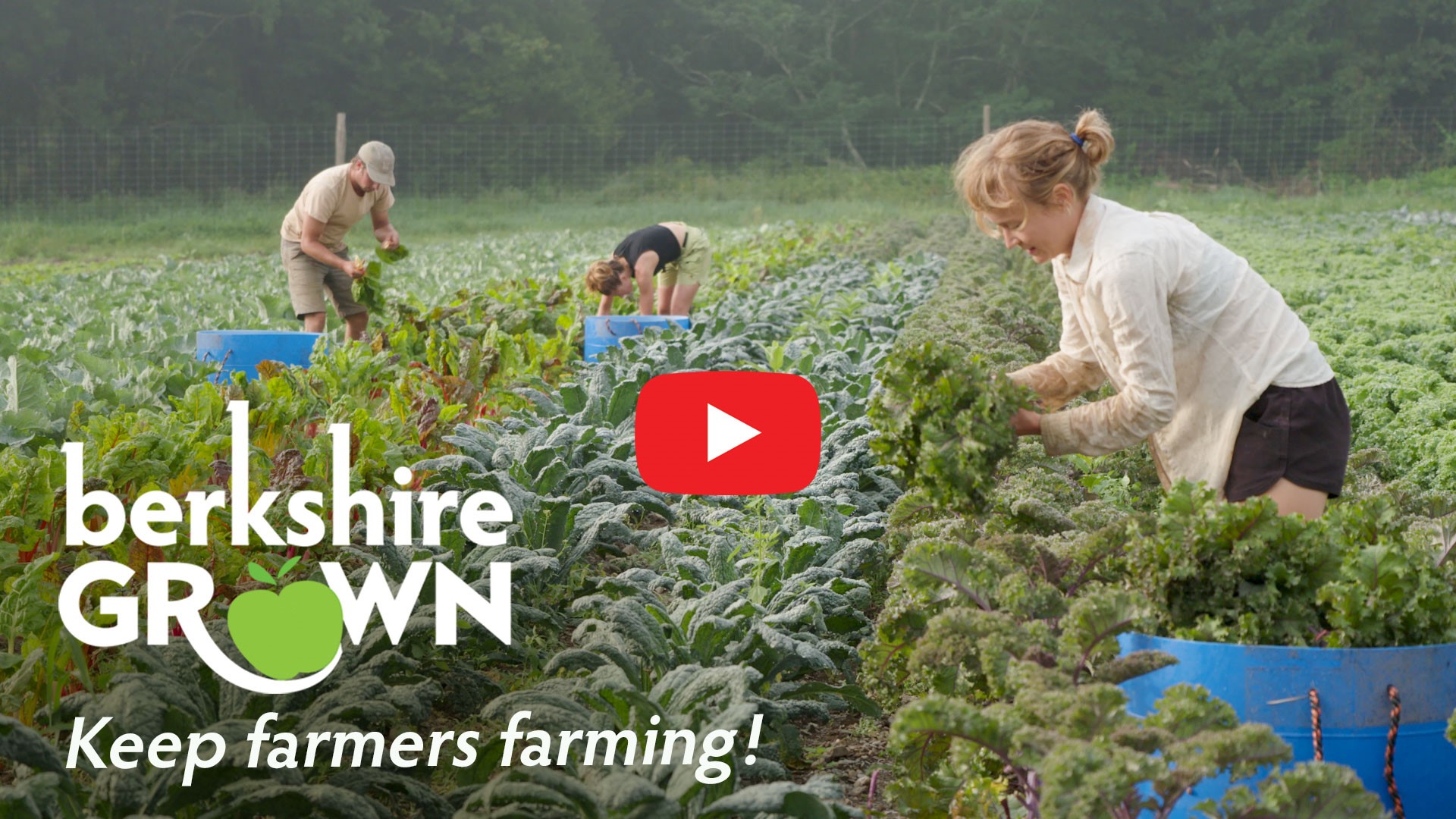National Grant for Historically Underserved Farmers and Ranchers
Grants of $5,000 will be available to eligible New England applicants – Applications will be accepted from July 1-8, 2024.
AFT has recently centralized and rebranded its’ grantmaking. The New England Farmer Microgrants Program will now be administered under AFT’s larger grant-making umbrella, the Brighter Future Fund (“BFF”). This can fund projects related to 1) improving farm viability, 2) accessing, transferring, or permanently protecting farmland, or 3) adopting regenerative farming practices and increasing resilience to climate change. Due to funding priorities, AFT expects to be able to award extra funding in New England for farmland access, succession, and transfer projects. Details here.
Photo Contest Time – Deadline July 8, 2024
Looking for some extra publicity of your farm? Submit your best agricultural photos to our Massachusetts Annual Photo Contest – Winners will be featured in the 2025 Calendar – Open to all!
We are looking for a range of photos to spotlight Massachusetts farms throughout the year: farm animals, flowers, maple, fruits and vegetables, farmers mkts, bees and pollinators, cranberries, apples, pumpkins, Christmas trees and more! You are encouraged to submit up to five of your best photos.
Twelve winners will be included in the 2025 “Celebrating the Seasons of Massachusetts Agriculture” Calendar and invited to the Big E on Massachusetts Day! The Winning cover photographer wins a “Sweet” MassGrown basket (honey, maple syrup ‘n more!).
Massachusetts Agriculture in the Classroom, MDAR, and the MA State Grange each year create this attractive, colorful and educational calendar that is a daily reminder of our rich and diverse agricultural landscape in Massachusetts. The annual Calendar serves as a great tool for teachers, as it includes “Fun Facts” and “Teaching Tips.” Each month will feature one full-size photograph portraying a local farm or farm product in season.
Contest rules here. You can submit up to 5 photos online here!
MA Farm Energy Program (MFEP) – Energy Audits
MDAR’s Massachusetts Farm Energy Program (MFEP) has funds to help farms cover audits, energy efficient projects, and select renewable energy projects. You will need a technical assessment to file an energy grant application whether with MDAR or USDA. MFEP pays 75% of the technical assessment, first come, first served.
Contact our MFEP now for more information through the Center for EcoTechnology (CET), our partner helping us administer the MFEP: 413-727-3090, info@massfarmenergy.com, or visit www.massfarmenergy.com, and submit a Request Form, and we will contact you.
Agricultural Resource Fair
Non-profit agricultural stakeholders and service providers including MDAR’s Federal-State Partners will be offering the Massachusetts agricultural farming community up-to-date timely resource information including information on services, funding, and technical assistance programs to provide a ‘One-Stop Shopping’ resource opportunity for those that attend.
The Fair’s goal is to assist in making the agricultural industries in Massachusetts sustainable and viable. There is no fee to participate, and locally sourced snacks will be provided throughout the day. Please let us know you are coming by filling out this form. Registration is not required but would be greatly appreciated to get an accurate count of attendees. For more information including a list of exhibitors (coming soon) go to the fair’s website. For other questions about the Agricultural Resource Fair, please contact Mary Jordan, at mary.jordan@mass.gov or 617-459-8747.
Open Application Period for MDAR’s Grant Programs
MDAR is now accepting applications for operations who wish to participate in the Department’s grant programs. Grants are available to help agricultural operations with business planning and technical assistance, as well as to make farm improvements that enhance their economic viability, help prevent negative impacts to environmental resource, adapt and mitigate climate change, improve energy efficiency, and adopt renewable energy technologies. In addition, grants are available to help fund projects that support food ventures in low- or moderate-income communities, and urban agriculture projects. **New to MDAR** is the Food Security Infrastructure Grant (FSIG) Program (see below) which funds projects that ensure that farmers, fishermen, and other local food producers are better connected to a strong, resilient food system while providing greater, more equitable access to local food.
Applicants are encouraged to review the information and Request for Response (RFR) on the individual program’s webpage. If interested in applying, applications must be submitted with any supporting documentation by the program’s deadline.
Viability Grant Programs
MDAR is accepting applications from Massachusetts farmers who wish to participate in one of the Viability Grant Programs. This includes the Farm Viability Enhancement Program (FVEP),the APR Improvement Program (AIP), and the Matching Enterprise Grants for Agriculture (MEGA) programs. These programs help with project planning and overall farm viability. The RFR containing program details and the application form is posted on COMMBUYS and can be accessed through a link on each program website below. If you would like an application mailed to you, contact the program coordinator listed below.
The due date for these three applications is Thursday April 18, 2024.
Viability Grants Webinar: Tuesday, March 19 @4:00pm – register here to attend to learn more about these three programs.
Farm Viability Enhancement Program (FVEP)
For established farms: This program provides business planning and technical assistance to develop or update a business plan for established commercial farms that own and operate unrestricted farmland. In return for a short-term covenant to keep the land in agricultural use, operators may be eligible for grants to implement capital projects on the farm that have been identified in the business plan completed through the program. Grant levels have increased: up to $100,000, $150,000, or $200,000, depending on the size of the farm and acreage protected, in return for a 10 or 15-year term covenant. Uses of funds will vary depending on the needs of the farm – examples include, but are not limited to, new or improved livestock barns or farm stores; purchasing delivery vehicles, tractors, or haying equipment; constructing food processing or storage facilities.
Applications Due: 4:00 PM on Thursday, April 18, 2024
Website: Farm Viability Enhancement Program (FVEP) | Mass.gov
Contact: Laura Barley at Laura.Barley@mass.gov or (857) 507-5548.
APR Improvement Program (AIP)
For APR farms: This program helps sustain active commercial farming on land that has already been protected through the state’s Agricultural Preservation Restriction (APR) Program. AIP provides business planning and technical assistance to farmers selected to participate in the program and grants may be available to implement identified capital improvements on the farm to increase productivity and profitability. Grant levels are up to $90,000; $125,000; or $150,000 depending on the size of the farm and acreage under APR, available on a cost reimbursement basis with a required 10% match contribution. AIP funds are used primarily for capital improvements to farm infrastructure such as new or improved buildings for equipment, hay storage, livestock housing, farm stores or processing facilities; or resource improvements for agricultural use, such as orchard renovations or perimeter fencing.
Applications Due: 4:00 PM on Thursday, April 18, 2024
Website: APR Improvement Program (AIP) | Mass.gov
Contact: Melissa Adams at Melissa.L.Adams@mass.gov or (413) 726-2001
Matching Enterprise Grants Program (MEGA)
For beginning farmers: This program provides business planning and technical assistance, and grant funds may be available on a one-to-one matching cash reimbursement basis. Funds may be used for equipment, infrastructure, or other capital improvements identified through the business planning process that will have a positive impact on the farm’s viability. Common uses of MEGA grant funds include, but are not limited to, greenhouses, barn renovations, tractor implements, chicken coops, farmstands, and refrigerated trucks.
Expanded eligibility and grant levels continue – MEGA now assists beginning farmers who have been in business at least one (1) and no more than ten (10) years and are developing their farms into commercially viable operations. Grant levels are up to $10,000, $20,000,or $30,000, based on the number of years the farm has been in business, minimum gross income, and whether the farm has received a prior MEGA award. Prior MEGA participants may be eligible to apply for a second award – see the Request for Response (RFR) for details.
Applications Due: 4:00 PM on Thursday, April 18, 2024
Website: Matching Enterprise Grants for Agriculture (MEGA) | Mass.gov
Contact: Jess Camp at Jessica.Camp@mass.gov or (617) 823-0871
Food Access Programs
Urban Agriculture Program
MDAR seeks proposals for funding projects to support commercial urban food production and community-based food production in the Commonwealth. MDAR’s Urban Agriculture Program is seeking to award grants statewide to promote strategies addressing food insecurity, to expand and create new economic opportunities and to increase access to fresh, local produce in urban neighborhoods.
Applications Due: 4:00 PM on Monday, May 6, 2024
Website: Urban Agriculture Program | Mass.gov
Contact: Rose Arruda at Rose.Arrruda@mass.gov or (617) 851-3644
Food Ventures Program
MDAR seeks proposals for funding projects that will advance the Massachusetts Food Ventures Program (“MFVP”), help to implement the objectives of the Massachusetts Local Food Action Plan and provide economic opportunities that promote job creation enterprises or new businesses. MDAR is seeking to award grants statewide, primarily in communities of low or moderate income, to individuals or entities with experience developing and supporting food businesses.
Applications Due: 4:00 PM on Monday, May 6, 2024
Website: Food Ventures Grant | Mass.gov
Contact: Rose Arruda at Rose.Arrruda@mass.gov or (617) 851-3644
Food Security Infrastructure Grant (FSIG)
The FSIG Program seeks to ensure that farmers, commercial fishermen, and other local food producers are better engaged with a strong, resilient food system to help mitigate food supply and distribution disruptions, as well as to ensure that individuals and families throughout the Commonwealth have equitable access to food, with a focus on food that is produced locally. Participants selected for funding are provided with reimbursement grants up to $500,000.
Applications Due: 4:00 PM on Thursday, May 2, 2024
Website: Food Security Infrastructure Grant | Mass.gov
Contact: Laura Maul at Laura.Maul@mass.gov or (857) 507-5972
Additional Grants
Stewardship Assistance and Restoration on APRs (SARA)
For APR Owners – This grant helps improve the status and condition of farmland that has been protected by an MDAR Agricultural Preservation Restriction (APR). The goal of SARA is to restore the overall utilization of APR land resources for commercial agriculture. Grant funds of up to $35,000 are available on a cost reimbursement basis with a 15% match of total project costs required by the farm participant.
SARA provides funding to help address stewardship issues and restore active commercial farming on APR land. Funds must be used for projects to restore inactive farmland back into active commercial agricultural use or to restore resources for increased agricultural production on existing APR farmland. Responder must not have been the original owner of the property when the land was placed under the APR unless the proposed restoration is in response to damage caused by a natural disaster or third party. Leasing farmers (including future heirs with leases) are also eligible. Details about eligibility of participants and projects is contained in the RFR linked below.
Applications Due: 2:00 PM on Thursday, April 18, 2024
Website: Stewardship Assistance and Restoration on APRs | Mass.gov
Contact: Julie Weiss at Julie.Weiss@mass.gov or (617) 913-5317
Sky High Farm Grants
Sky High Farm Grants was established in 2022 as an annual program of micro-grants. The program is committed to building equity in our extended agricultural circle by supporting a range of projects helmed by farmers and food justice advocates whose work is rooted in their communities and our shared values.
Black, Indigenous, Latinx, Asian, migrant, refugee and other groups excluded from traditional funding opportunities experience profound barriers in access to land, acquiring essential farming tools and equipment, experiential and formal education around sustainable farming practices, and wages from farming that support stable housing and basic human needs.
View Sky High Farm Grant Details
Coming Soon!
Climate Smart Agriculture Program (CSAP)
The Climate Smart Agriculture Program links MDAR’s water, energy and climate grants together into one application. This includes the Agricultural Climate Resiliency & Efficiencies (ACRE) Program, the Agricultural Environmental Enhancement Program (AEEP), and the Agricultural Energy Grant Program (ENER). This program continues the goals of the three individual grants by implementing projects that help the agricultural sector adapt to climate change, mitigate climate change, reducing or preventing impacts to natural resources that may result from agricultural practices, and that improve energy efficiency and facilitate adoption of alternative clean energy technologies.
The CSAP grant is broken into two sections. Section I: Environmentis for environmental projects such as soil health, water use efficiency, orother projects working towards reducing or limiting greenhouse gas emissions.Section II: Energy is Ag-Energy projects to improve energy efficiency or tofacilitate clean energy adoption.
Applicants can apply to either or both sections.
Participants selected for funding under either section are provided with reimbursement grants for 80% of total project costs up to$50,000.
Applications Due: TBD
Website: Climate Smart for Agriculture Program | Mass.gov
Section I: Environment – Laura Maul at Laura.Maul@mass.gov or (857) 507-5972
Section II: Energy – Gerry Palano at Gerald.Palano@mass.govor (617) 571-4969
Agricultural Food Safety Improvement Program (AFSIP)
The Agricultural Food Safety Improvement Program (AFSIP) is a reimbursement grant program that supports produce and aquaculture operations that are looking to improve their food safety practices that work towards minimizing the risks of microbial contamination and food-borne illnesses while increasing market access.
Participants selected for funding are provided with reimbursement grants for 80% of total project costs up to$50,000.
Applications Due: TBD
Website: Agricultural Food Safety Improvement Program | Mass.gov
Contact: Laura Maul at Laura.Maul@mass.gov or (857) 507-5972
Cranberry Bog Renovation Grant Program
The Cranberry Bog Renovation Grant Program is a reimbursement grant program for the implementation of bog renovations that promote more efficient bogs both in design and production while enhancing the business and environmental sustainability of the cranberry operation.
Awards are limited to $25,000 per acre up to a maximum of $125,000.
Applications Due: TBD
Website: Cranberry Bog Renovation Grant Program | Mass.gov
Contact: Laura Maul at Laura.Maul@mass.gov or (857) 507-5972
USDA Grants
Farmers Market Promotion Program
The Farmers Market Promotion Program (FMPP) funds projects that develop, coordinate and expand direct producer-to-consumer markets to help increase access to and availability of locally and regionally produced agricultural products by developing, coordinating, expanding, and providing outreach, training, and technical assistance to domestic farmers markets, roadside stands, community-supported agriculture programs, agritourism activities, online sales or other direct producer-to-consumer (including direct producer-to-retail, direct producer-to-restaurant and direct producer-to-institutional marketing) market opportunities. FMPP is part of the Local Agriculture Market Program (LAMP).
Applications Due : May 14, 2024
View Details
Local Food Promotion Program
The Local Food Promotion Program (LFPP) funds projects that develop, coordinate, and expand local and regional food business enterprises that engage as intermediaries in indirect producer to consumer marketing to help increase access to and availability of locally and regionally produced agricultural products.
Applications Due : May 14, 2024
View Details
Regional Food Systems Partnership
The Regional Food System Partnerships (RFSP) program supports partnerships that connect public and private resources to plan and develop local or regional food systems. The program focuses on building and strengthening the viability and resilience of
local or regional food economies through collaboration and coordination. RFSP supports public-private partnerships that plan and develop relationships between local and regional producers, processors, intermediaries, and institutional markets or institutional
food service operations through local and regional producers and local and regional food systems.
Applications Due : May 14, 2024
View Details
Value Added Producers Grant
The Value-Added Producer Grant (VAPG) program helps agricultural producers enter value-added activities to generate new products, create and expand marketing opportunities, and increase producer income.
You may receive priority if you are:
- Beginning farmer or rancher
- Socially-disadvantaged farmer or rancher
- Small or medium-sized farm
- Ranch structured as a family farm
- Farmer or rancher cooperative
- Proposing a mid-tier value chain
Applications Due : April 11, 2024
View Details
Thinking about learning new processes while networking with other farmers and food producers over the winter months? Berkshire Grown will offer these upcoming workshops. Pre-registration is required for all workshops and must be done by noon the day before the workshop date. A link to attend the online workshops will be emailed the day prior to the workshop date. Location, directions and details about the Labor Movement in person workshop on April 10, 2024 will be emailed on April 9, 2024.
Be sure to contact Berkshire Grown at buylocal@berkshiregrown.org if you need more information or call (413) 528-0041, Monday through Friday 9am-3pm. Register for workshops here.
Incorporating Perennial Crops on Your Farm with Regenerative Design Group
This Workshop took place on Thursday, January 25, 2024. (Now closed to registration.)
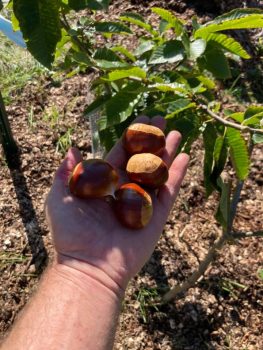 Agroforestry crops and practices have the potential to help farmers manage the land they are farming in different ways, providing new opportunities to grow emerging crops that can be incorporated into existing markets, or help boost ecological and financial resiliency. Attendees will hear from Jono Neiger of Regenerative Design Group (RDG) and Big River Chestnuts about potential perennial crops, their management, and how practices can be defined and funded (through NRCS, MDAR or other sources).
Agroforestry crops and practices have the potential to help farmers manage the land they are farming in different ways, providing new opportunities to grow emerging crops that can be incorporated into existing markets, or help boost ecological and financial resiliency. Attendees will hear from Jono Neiger of Regenerative Design Group (RDG) and Big River Chestnuts about potential perennial crops, their management, and how practices can be defined and funded (through NRCS, MDAR or other sources).
With Farmer Co-Presenters
Seva Water; Nutwood Farm / Regenerative Design Group
Babette Wils; Bigfoot Food Forest
 Attendees will have the opportunity to interact with Jono and the NOFA agroforestry cohort farmers to learn more about technical assistance opportunities available in the field to help design and implement perennial crops and agroforestry practices.
Attendees will have the opportunity to interact with Jono and the NOFA agroforestry cohort farmers to learn more about technical assistance opportunities available in the field to help design and implement perennial crops and agroforestry practices.
Regenerative Design Group is a worker-owned ecological design practice dedicated to working with farm owners to develop diverse agroecological and agroforestry systems that support the farm’s social, environmental, and economic goals.
Two-Part Grant Writing Workshop. How to read and interpret grant applications.
Session 1, Wednesday, February 21, 2024 with follow up Session 2, Wednesday, March 6, 2024
11AM-1PM
Online, Registration is for both sessions. Workshop may not be taken as individaul sessions.
Fee: $40 Members, $60 Non-members
Maximum 15 Students
Berkshire Grown will host a virtual two-part grant writing training, led by Kara Weinstein, for farmers and food producers looking to develop an understanding of how to read and interpret grant applications, and the basic story-telling and writing skills to submit successful grant applications. The first session on February 21, 2024 will cover researching prospects, understanding the Request for Proposals (RFP) process, how to write a compelling needs statement, effective outcomes and evaluations, and developing project budgets. At the end of the first session participants will be assigned homework to draft a response to a sample proposal question.
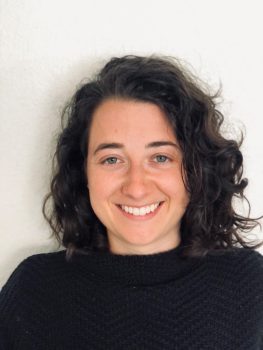 In the second session on March 6, 2024, participants will share their responses, and receive feedback on how to improve them, coming away with an outline for a boiler plate of usable text for grant applications.
In the second session on March 6, 2024, participants will share their responses, and receive feedback on how to improve them, coming away with an outline for a boiler plate of usable text for grant applications.
Kara is a food systems consultant based in Kingston, NY. As founder of KHW Strategies, she works with food systems and sustainable agriculture operators and nonprofits on strategic vision, operations, grant writing and execution, and project management. She has a background in corporate sustainability + ESG consulting and communications. Kara holds a Master’s in Food Systems from New York University and a Bachelor of Arts in English Literature and Environmental Policy and Culture from Northwestern University.
SNAP/HIP-Best Practices and Solutions to Common Issues
Tuesday, February 27, 2024
Online: 6-7:30PM
Fee: $20 Members, $30 non-members
Join Berkshire Grown and Zoey Sloate to learn best practices on incorporating SNAP into your business in a way that creates a welcoming space.
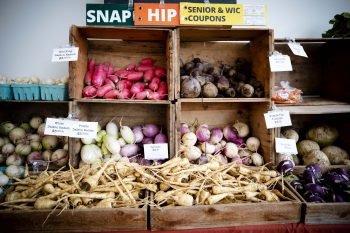 Attendees will come away with marketing best practices and models of inclusive language to explain SNAP, HIP, & coupons. Attendees will also learn additional tools to augment how you can accept SNAP: (1) accepting SNAP/HIP for a CSA, (2) accepting SNAP online, (3) common troubleshooting issues and solutions. There will also be time for questions and discussion. In advance of the workshop, Berkshire Grown will solicit a few points of interest and discussion topics from attendees to guide conversation topics.
Attendees will come away with marketing best practices and models of inclusive language to explain SNAP, HIP, & coupons. Attendees will also learn additional tools to augment how you can accept SNAP: (1) accepting SNAP/HIP for a CSA, (2) accepting SNAP online, (3) common troubleshooting issues and solutions. There will also be time for questions and discussion. In advance of the workshop, Berkshire Grown will solicit a few points of interest and discussion topics from attendees to guide conversation topics.
Zoey lives in Massachusetts and has been helping businesses with SNAP, HIP, WIC and Senior FMNP coupons for five years – her experience includes technical setup, government approval, troubleshooting, and developing welcoming spaces.
Labor Movement with Cynthia Flores
“When you move well, you work well.”
Wednesday, April 10, 2024
1-3PM.
In-person workshop at Hancock Shaker Village, Pittsfield, MA
Limited to 15 students (Sorry, no drop-ins!)
Cost: $20 Members, $30 Non-members
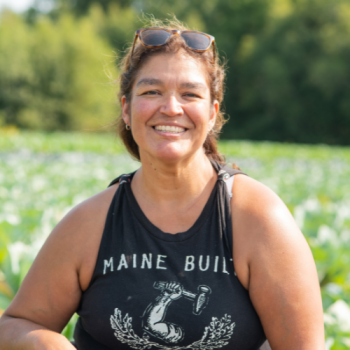 Labor-Movement believes that when you move well, you work well. Our mission is to help farmers, fishermen, landscapers, and industrial athletes to improve their movement health and wellness, increase efficiency and extend longevity in a season or career.
Labor-Movement believes that when you move well, you work well. Our mission is to help farmers, fishermen, landscapers, and industrial athletes to improve their movement health and wellness, increase efficiency and extend longevity in a season or career.
Our mission is to help farmers, fishermen, landscapers, and industrial athletes to improve their movement health and wellness, increase efficiency and extend longevity in a season or career.
Movement Workshops address BETTER body mechanics and movement patterns related to farm tasks to increase productivity and help decrease workplace injuries. Time will be spent in an interactive atmosphere moving through basic movement patterns. Every attendee will leave with tips focused on ways to improve their overall movement patterning and work-related well-being. Time will be allotted for questions and some detailed discussion. Learn more about Cynthia’s mission at: https://www.labor-movement.com/
Cynthia Flores founded Labor-Movement LLC in 2020 with the mission of working with farmers and farmworkers to train body mechanics and movement patterns used in farming.
The Baker-Polito Administration earlier this week announced $22.5 million in funding to food producers across the Commonwealth, continuing ongoing efforts to address food insecurity issues exacerbated by the COVID-19 pandemic.
The Food Security Infrastructure Grant Program seeks to ensure local food producers are better connected to a robust and resilient food supply system in order to mitigate future food supply and distribution issues. This year’s recipients of grant funding represent a variety of sectors, including farms, fisheries, schools, nonprofits, for profits, food pantries, municipalities, distributors/suppliers, and other entities. Thirteen grants were awarded in the Berkshires.
In Pittsfield, Roots Rising was awarded funding toward building a new Youth Farm which will serve as a training ground for youth, a community and food hub, and a headquarters for the organization. Roots Rising’s Youth Farm will be teen-powered and community centered, and will be an innovative approach to youth empowerment, food justice and sustainable development.
Full Well Farm in Adams will use the funds to build a climate battery heated greenhouse. The infrastructure improvement “will allow us to produce vegetables year-round, improve our production of summer favorites like tomatoes, and allow us to move our seedling production to our own farm rather than renting space”, said farmers Meg Bantle and Laura Tupper-Palches.
“Ensuring children, their families, and all individuals have access to healthy, local food products is critical, particularly as so many continue to be detrimentally impacted by the pandemic,” said Lieutenant Governor Karyn Polito. “Our Administration is proud to work so closely with the Commonwealth’s farmers, food distributors, non-profit organizations, and others as we partner to strengthen the state’s food supply chains.”
Prior awardees have been able to make local, fresh food production more efficient and accessible, lower the production cost, and increase distributors’ ability to partner with SNAP, EBT, and other organizations.
Sweet Brook Farm in Williamstown will use the award to purchase a new cattle corral system. “As an emerging beef producer in Berkshire County,” said farmer Sarah Lipinski, “Sweet Brook Farm hopes to use these funds to expand our operations to further support the demand for local, sustainable foods.”
Lanesborough’s Red Shirt Farm received FSIG funds to construct a new farm store and commercial kitchen. Farmer Jim Schultz said that the store will serve as “a conduit for connecting our farm with the community”, and the commercial kitchen will help the farm reduce food waste by turning excess produce into value-added products.
Berkshire Grown is proud to be among this year’s awardees, alongside many outstanding farmers and organizations working to address food insecurity in the region. As part of their Farm to Food Access program, Berkshire Grown maintains cooler and freezer for crop and meat storage. “We will use the FSIG funds to purchase a back-up generator for the walk-in, a temperature monitor and alert system, and funds to pour a concreate delivery platform outside the cooler door. This allows us to make large-scale crop purchases from local farmers and store the food until pick-up by food pantries and community kitchens,” says Executive Director Margaret Moulton.
The awardees for this round of FSIG grants in the Berkshire region include:
- Berkshire Grown, Inc. (Great Barrington): Temperature control support for walk-in cooler
- Berkshire Wildflower Honey LLC dba Mill River Farm (Great Barrington)
- Fairfields Dairy Farm LLC (Williamstown): upgrade to automatic milking system
- Full Well Farm LLC (Adams): Climate battery greenhouse
- Greenagers, Inc. (South Egremont): infrastructure and equipment to improve food storage capacity
- Holiday Brook Farm LLC (Dalton): season-extending high tunnel
- Ian Allen Farms (Sheffield)
- North Plain Farm (Housatonic): improvements to Farm Store
- Olsen Farm (Lanesborough): two hoop houses
- Red Shirt Farm (Lanesborough): build-out of Farm Store and commercial kitchen
- Roots Rising (Pittsfield): Toward expenses related to establishing a Youth Farm
- Sweet Brook Beef Company (Williamstown): New cattle corral system
- Woven Roots Farm (Tyringham): improvements to strengthen vegetable production/distribution capacity, expand wash/pack and storage infrastructures
Since 2020, the Baker-Polito Administration has awarded over $58 million in grants to 507 projects across the Commonwealth through the grant program. For more information regarding the Food Security Infrastructure Grant Program, please visit the program’s webpage.
Sweet Brook Farm herd of cattle in paddock, Williamstown, MA.
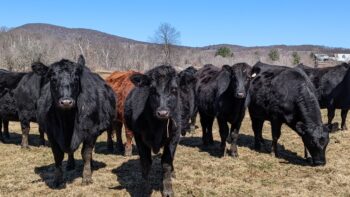
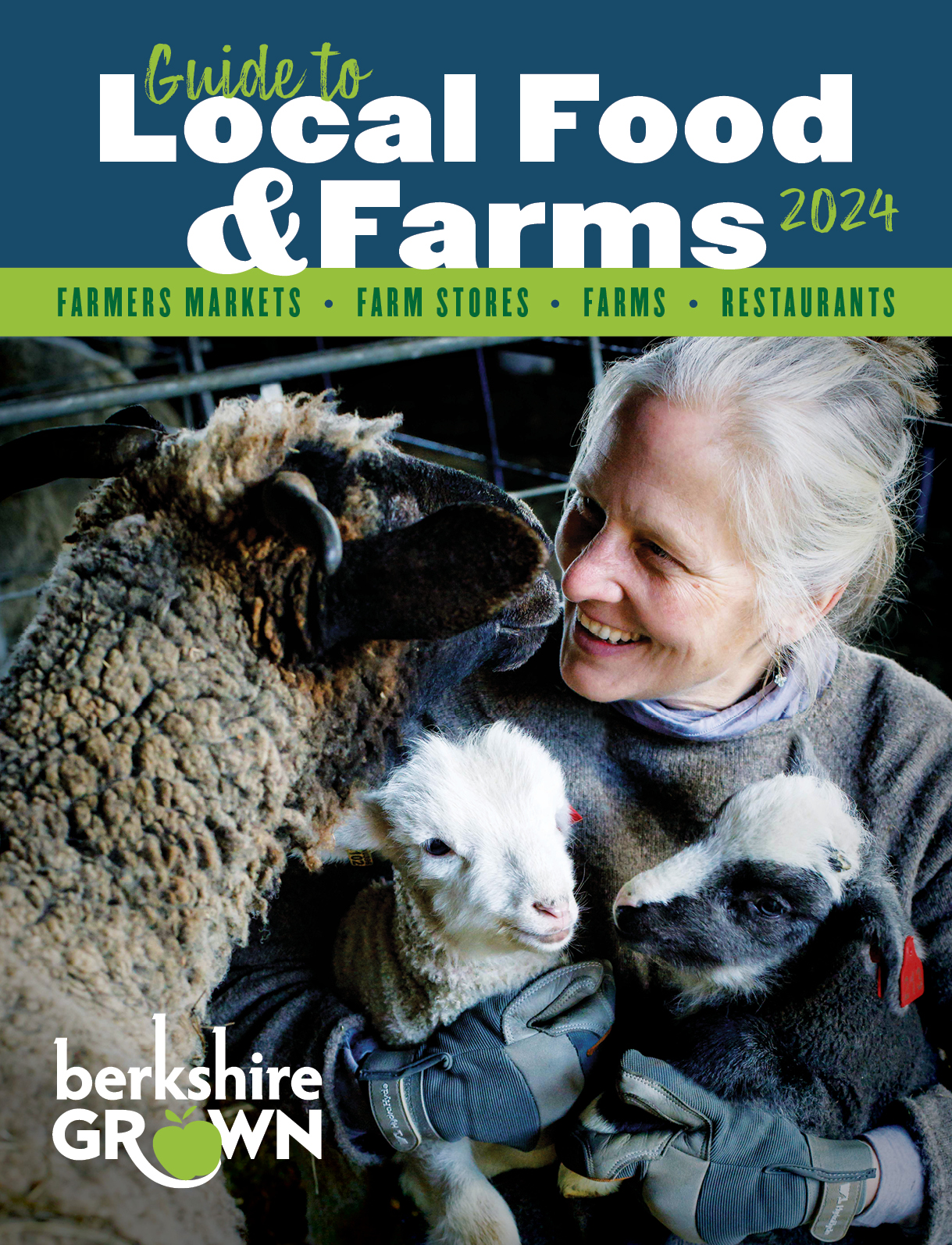 The Berkshire Grown Guide to Local Food & Farms 2024 is a great resource for finding fresh, locally grown and prodcued food around the Berkshires. Find local farms growing specialty crops, offering CSA’s, accept SNAP and other benefits. Learn where you can shop for fresh food at local farm stores and at the various Berkshire Farmers Markets. The Guide also features speacialty food producers and grocers, restaurants and lodging selling farm fresh products. Visit the Community Food Pantries section if you need assistance accessing food.
The Berkshire Grown Guide to Local Food & Farms 2024 is a great resource for finding fresh, locally grown and prodcued food around the Berkshires. Find local farms growing specialty crops, offering CSA’s, accept SNAP and other benefits. Learn where you can shop for fresh food at local farm stores and at the various Berkshire Farmers Markets. The Guide also features speacialty food producers and grocers, restaurants and lodging selling farm fresh products. Visit the Community Food Pantries section if you need assistance accessing food.





